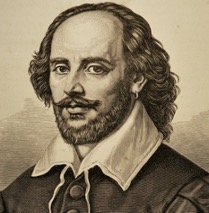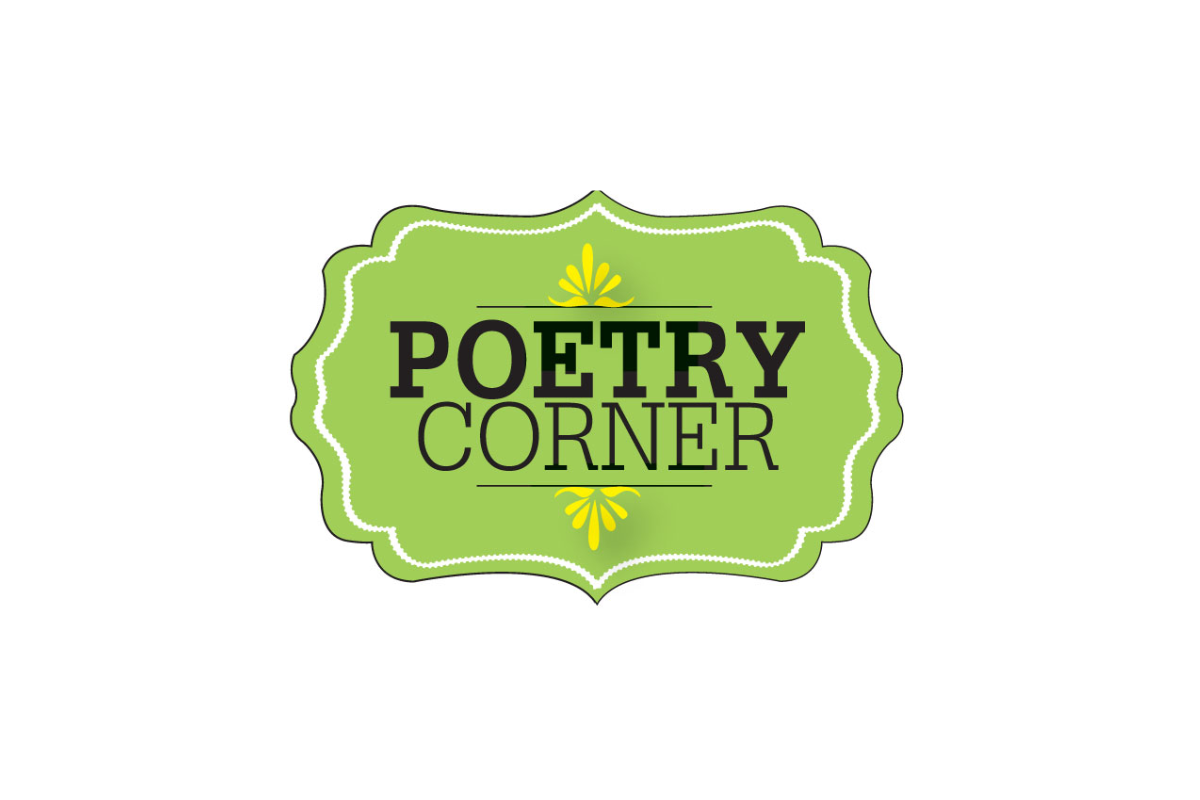By Norah Christianson
Sonnet 116: Let me not to the marriage of true minds
By William Shakespeare
Let me not to the marriage of true minds
Admit impediments. Love is not love
Which alters when it alteration finds,
Or bends with the remover to remove.
O no! it is an ever-fixed mark
That looks on tempests and is never shaken;
It is the star to every wand’ring bark,
Whose worth’s unknown, although his height be taken.
Love’s not Time’s fool, though rosy lips and cheeks
Within his bending sickle’s compass come;
Love alters not with his brief hours and weeks,
But bears it out even to the edge of doom.
If this be error and upon me prov’d,
I never writ, nor no man ever lov’d.

There have been theorists (known in academia as “anti-Stratfordians”) who doubt that Shakespeare authored his plays and sonnets. These people point to men of an upper class, such as Francis Bacon or the Earl of Oxford as the true authors. (It’s a class thing!) But, as Patrick Cheney, Ph.D., Distinguished Professor of English and Comparative Literature at Penn State has written, “Those who can’t believe that a man with a grammar-school education wrote these plays and poems overlook a sobering fact of literary history: the inventors of modern English literature were over-whelming from the working class. Not only was Shakespeare the son of a glover, but Ben Jonson was the son of bricklayer, and Edmund Spenser the son of a tailor, while Christopher Marlowe was the son of a butcher.” Cheney points out, “The case for the Earl of Oxford is about the belief of class-conscious gentlemen that only an aristocrat could produce great works of literature. Perhaps we should let Spenser, Marlowe, and Jonson know.”
I once heard a lecturer claim that Shakespeare couldn’t have written his plays because his spelling was inconsistent. (Mine would be inconsistent were it not for spell check.) But during Shakespeare’s time, the spelling of the English language was not yet cast in stone, so the spelling of English words was inconsistent. This same lecturer (we could call these doubters “literary conspiracy theorists”) claimed that Shakespeare came from a small town and would not have been educated nor exposed to any theatrical goings-on. Therefore, he could not have written those brilliant plays and sonnets. But Stratford-upon-Avon was often visited by troubadours and traveling troupes of actors, and Shakespeare, being the son of a well-to-do glover, tanner and wool dealer, most certainly would have gone to the King Edward VI Grammar School in Stratford, where the curriculum included Latin and Greek and classical writers such as Ovid, Terrance and Plautus. At any rate, and most importantly, what these doubters fail to credit is William Shakespeare’s genius.
So. Shakespeare was who he said he was. Most of what we do know about his life comes from registrar records, court records, wills, marriage certificates and his tombstone in Holy Trinity Church, Stratford-upon-Avon.
Shakespeare was born on April 23, 1564, in Stratford-upon-Avon. He married Anne Hathaway when he was eighteen and together they had three children. Shakespeare’s son, Hamnet, died in childhood.
In 1585, Shakespeare went to London to begin his apprenticeship as an actor. Because of the plague, the London theaters were often closed between June 1592 and April 1594, but during that period, Shakespeare probably had some income from his patron, Henry Wriothesley. In 1594, Shakespeare joined the Lord Chamberlain’s company of actors, and in 1599, Shakespeare joined a group of Chamberlain’s Men that built and operated a new playhouse: The Globe.
Around 1612, Shakespeare retired from the stage and returned to his home in Stratford. He drew up his will in January of 1616 and died on April 23, 1616. He was buried two days later at Holy Trinity Church in Stratford-upon-Avon. Shakespeare is credited with having written 38 plays and 154 sonnets.
Shakespeare’s Sonnet 116 speaks of the marriage of true minds, and it is often read at weddings. I think that the use of “marriage” here could also mean “union” or “alliance,” the word “true” can mean “honest, faithful,” and so the phrase “marriage of true minds” could also be applied to a deep friendship. It’s interesting that Shakespeare uses the word “minds” instead of “hearts,” thereby acknowledging that love is more than an emotion/sexual sensation, but also an intellectual bonding.
What Sonnet 116 simply says is that the power of love never changes. Obstacles should not be tolerated in a relationship based on love, nor should love change if the loved one changes. Love is a “mark,” a marker like a lighthouse, a guiding force that is never shaken by storms. Love is permanent. Love outlasts death.


thank you again and again